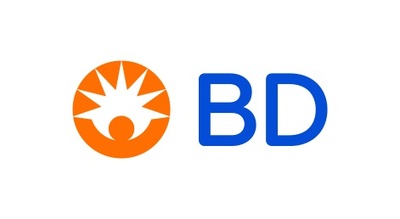BD and Health Care Consortium in Denmark Find Success in Medical Waste Recycling Study
- None.
- None.
Insights
The initiative led by BD and its partners to recycle used blood collection tubes represents a significant stride in addressing environmental concerns within the medical technology industry. The focus on transforming a biohazardous waste product into reusable materials aligns with global efforts to reduce the volume of medical waste and its associated carbon footprint.
From an environmental perspective, the shift from incineration to recycling could have a substantial impact on reducing greenhouse gas emissions. Incineration of medical waste is a carbon-intensive process and by diverting 33 tonnes of high-quality PET plastic annually from this fate, the project contributes directly to Denmark's Climate Action Strategy. Moreover, it sets a precedent for other regions to follow, potentially leading to a broader industry transformation.
However, the long-term success of such recycling programs hinges on the development of efficient and safe cleaning processes. The challenge lies in ensuring that the recycled PET meets rigorous health and safety standards for medical-grade materials. Continued research and innovation will be paramount to overcoming these hurdles, solidifying the environmental benefits while upholding patient safety.
The collaboration between BD and Danish healthcare institutions to recycle medical plastics is a noteworthy development, particularly within the context of the healthcare sector's sustainability efforts. This project could serve as a blueprint for other medical technology companies looking to enhance their environmental stewardship without compromising product integrity.
The economic implications of such recycling initiatives are multifaceted. On one hand, there is the potential for cost savings associated with the reduced need for raw materials and waste management expenses. On the other, there are initial investments required for research and the establishment of recycling infrastructure. Companies that successfully implement sustainable practices may also benefit from enhanced brand reputation and competitive advantage, as consumers and investors increasingly value corporate sustainability.
It is important to monitor the scalability of this recycling method and its adoption by other healthcare providers and regions. If widely adopted, this could lead to a significant reduction in medical waste on a global scale, altering supply chains and potentially affecting the bottom line of companies involved in the production and disposal of medical plastics.
BD's project presents an intriguing case for investors with an interest in sustainability and Environmental, Social and Governance (ESG) criteria. The ability to recycle high-quality PET plastic from used blood collection tubes is a notable innovation that could enhance BD's ESG profile, an increasingly important factor in investment decisions.
Investors will be watching closely to assess whether this initiative can be scaled and replicated, which would not only amplify its environmental impact but also potentially improve BD's operational efficiencies and cost structure. Moreover, the successful commercialization of such recycling processes could open up new revenue streams for BD and its partners, as recycled medical-grade plastics could be supplied to various industries.
It is essential to consider the regulatory landscape and the potential for policy incentives that might favor companies taking proactive steps toward sustainability. Such incentives could further improve the economic viability of recycling programs and enhance their attractiveness to investors. The alignment with Denmark's aggressive climate targets may also serve as a catalyst for similar initiatives in other markets, potentially impacting the broader medical technology sector.
BD partnered with Odense University Hospital, the Health Innovation Centre of
"Single-use plastic revolutionized health care, but we know there are environmental considerations that come with this critical innovation," said Amit Limaye, director of the BD Sustainable Medical Technology Institute. "BD is working with like-minded partners to drive sustainable innovation that will help reduce the environmental footprint of our product portfolio, while maintaining our high standards of patient safety, quality and efficacy."
Used blood collection tubes are considered biohazardous and regulated medical waste, and in
The collaborative effort was funded by the Region of
About BD
BD is one of the largest global medical technology companies in the world and is advancing the world of health by improving medical discovery, diagnostics and the delivery of care. The company supports the heroes on the frontlines of health care by developing innovative technology, services and solutions that help advance both clinical therapy for patients and clinical process for health care providers. BD and its more than 70,000 employees have a passion and commitment to help enhance the safety and efficiency of clinicians' care delivery process, enable laboratory scientists to accurately detect disease and advance researchers' capabilities to develop the next generation of diagnostics and therapeutics. BD has a presence in virtually every country and partners with organizations around the world to address some of the most challenging global health issues. By working in close collaboration with customers, BD can help enhance outcomes, lower costs, increase efficiencies, improve safety and expand access to health care. For more information on BD, please visit bd.com or connect with us on LinkedIn at www.linkedin.com/company/bd1/, X (formerly Twitter) @BDandCo or Instagram @becton_dickinson.
Contacts: | |
Media: | Investors: |
Jessica Offerjost | Adam Reiffe |
BD Public Relations | Sr. Director, Investor Relations |
201.258.0964 | 201.847.6927 |
![]() View original content to download multimedia:https://www.prnewswire.com/news-releases/bd-and-health-care-consortium-in-denmark-find-success-in-medical-waste-recycling-study-302090851.html
View original content to download multimedia:https://www.prnewswire.com/news-releases/bd-and-health-care-consortium-in-denmark-find-success-in-medical-waste-recycling-study-302090851.html
SOURCE BD (Becton, Dickinson and Company)
FAQ
What is the collaboration mentioned in the PR involving BD (Becton, Dickinson and Company)?
How are the used blood collection tubes recycled?
What is the environmental impact of transitioning from incineration to recycling the used blood collection tubes?








